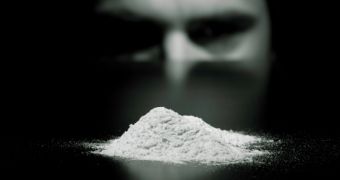A team of researchers working with the National Institute on Drug Abuse in the United States has recently gone public with the news that they had succeeded in treating several cocaine-addicted laboratory mice with the help of lasers.
Since the experiments carried out on these laboratory rodents basically came down to beaming lasers inside these animals' brains, it need not come as a surprise that the researchers are very much interested in developing a similar, yet slightly less intrusive, therapy that might one day be used on human patients.
For the time being, the scientists are looking into the possibility of using magnets in order to rewire the brain and make it quit its cocaine addiction. The Verge informs us that the practice of curing said drug addiction with the help of transcranial magnetic stimulation would involve the scientists' placing magnets on the outer side of the patients' skulls.
Information shared with the public says that the human brain area targeted during this procedure would be the anterior cingulate cortex, which appears to experience a reduction in its activity levels whenever someone becomes addicted to cocaine.
Prior to their testing this method of treating cocaine addiction on human patients, the scientists are to investigate how an area found inside the mice's brains (i.e. the prelimbic cortex) responds to magnetic stimulation.
Since the anterior cingulate cortex and the prelimbic cortex behave in fairly similar ways, the researchers hope that the results they will obtain by experimenting on mice will make it possible for them to also roll out human clinical trials.
“Our results show a marked reduction in prelimbic cortex excitability in compulsive cocaine-seeking rats, and that in vivo optogenetic prelimbic cortex stimulation decreased compulsive drug-seeking behaviours,” reads the paper published by these researchers.
“Thus, targeted stimulation of the prefrontal cortex could serve as a promising therapy for treating compulsive drug use,” the document continues.

 14 DAY TRIAL //
14 DAY TRIAL //